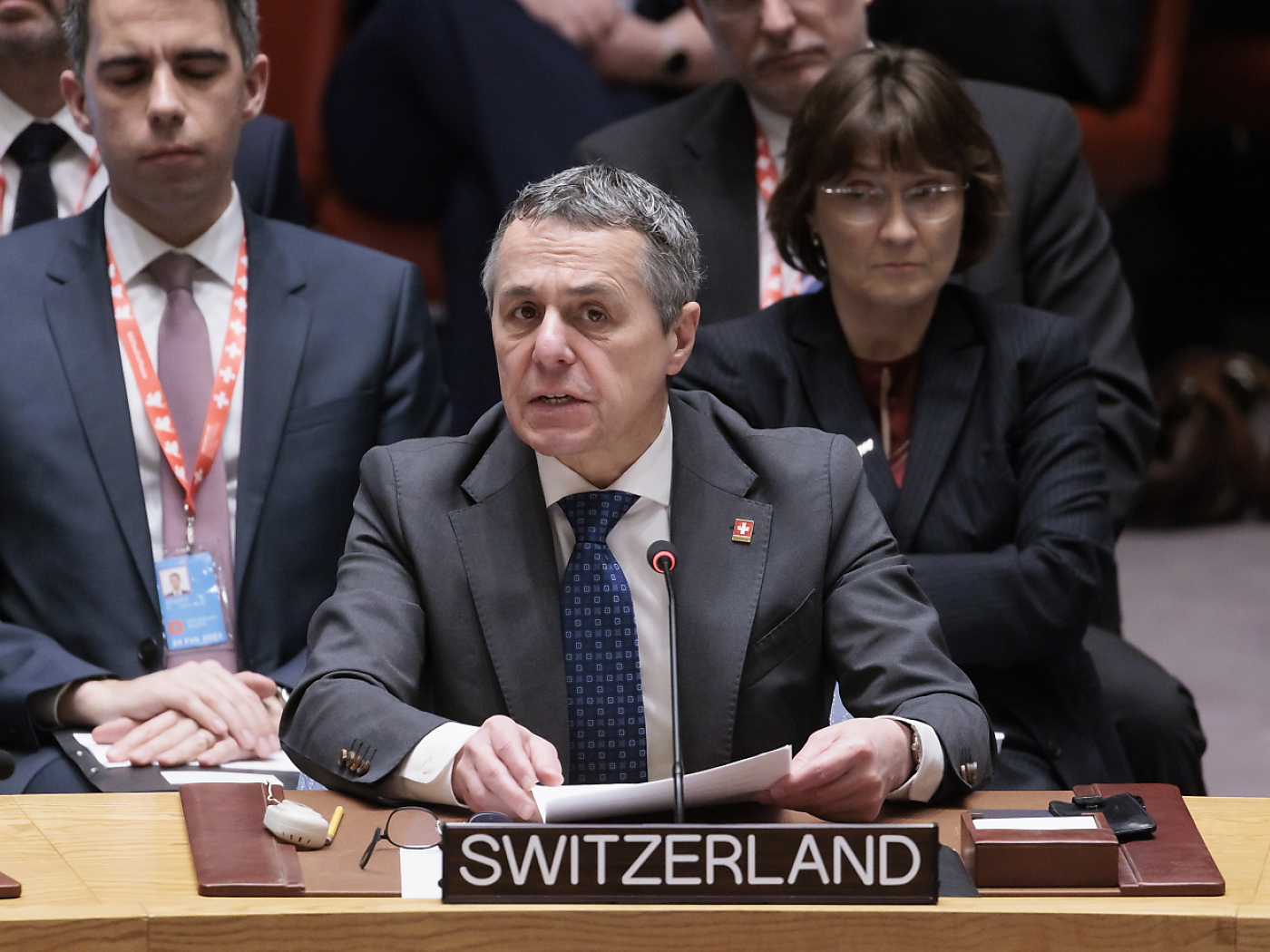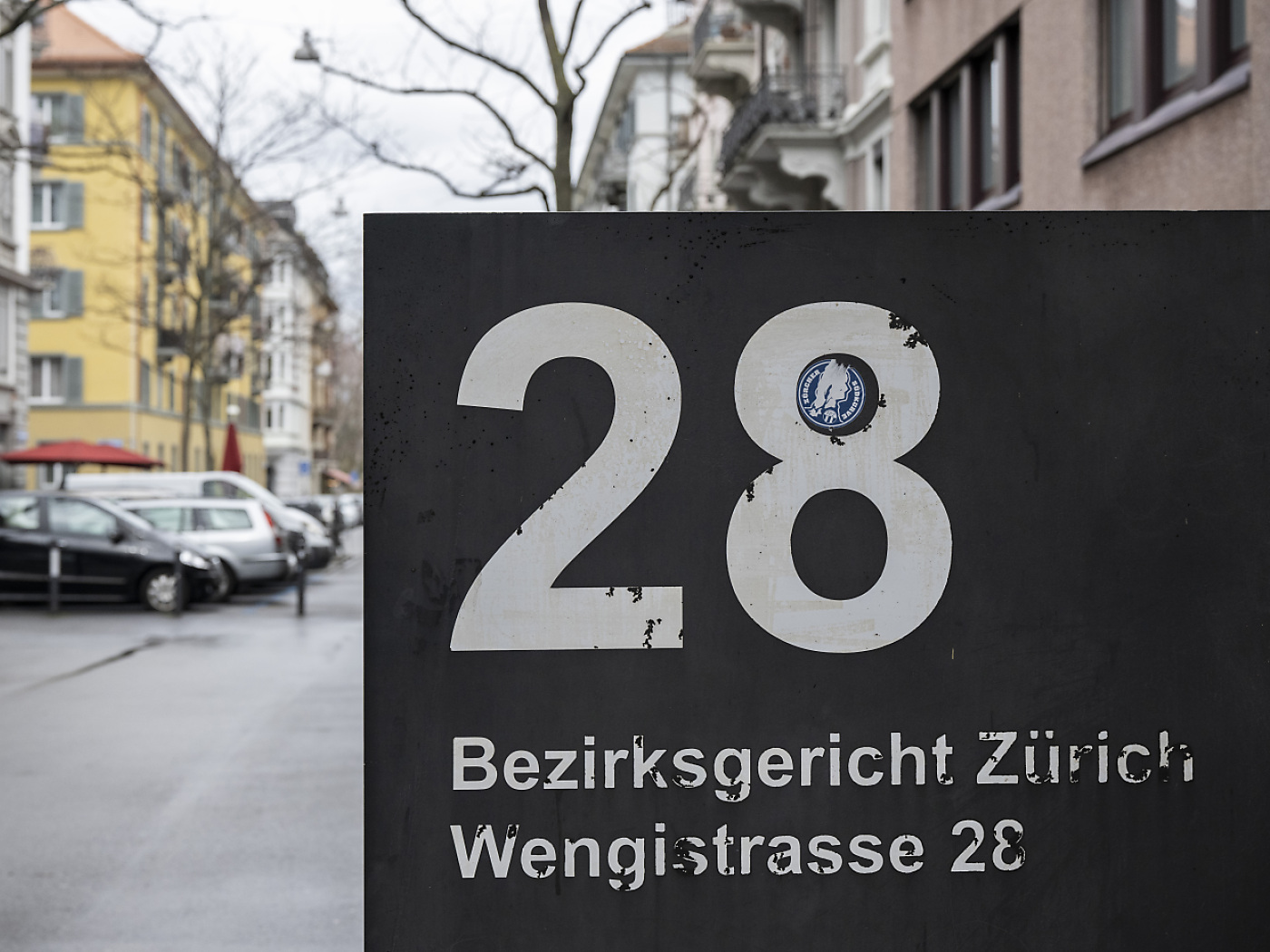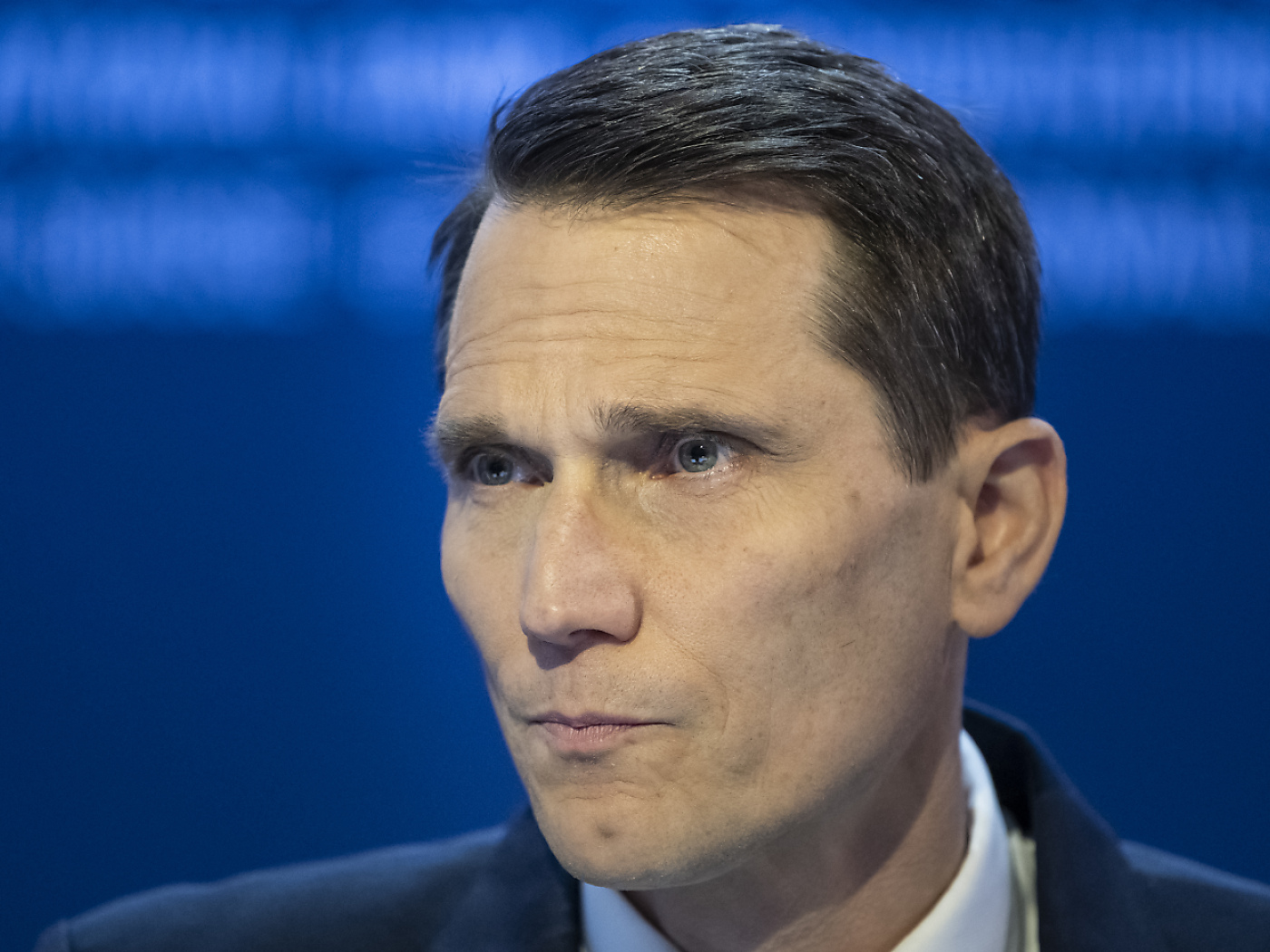Swiss warn of effects of new technologies on global peace and security

The ultra-fast development of new technologies and artificial intelligence will have a major impact on peace and security in the world. The UN Security Council, under the leadership of Swiss Foreign Minister Ignazio Cassis, is convinced of this.
+Get the most important news from Switzerland in your inbox
Soldiers who have longer endurance and greater pain tolerance thanks to neurotechnology, fighters who are able to control additional automatic limbs and acquire new senses such as sight in the dark: This is not the future, Cassis warned in his speech to the UN Security Council in New York on Monday.
“What was still science fiction ten or 15 years ago is now becoming our new reality,” he said. Switzerland, as president of the UN Security Council this month, had issued invitations to the meeting. Its two-year membership of the Council ends on December 31.
The integration of artificial intelligence and neurotechnologies enables ultra-fast decision-making, said Cassis in New York. “This raises profound questions about the control of decisions in war and ultimately how the applicability of human rights conventions can be guaranteed,” he said.
+ Artificial intelligence: an opportunity or a risk?
The speed of progress now far exceeds the biological speed of human evolution. This is leading to deep disruptions in society. “We must prepare ourselves to meet the future challenges of science. The future is here and now,” he said.
Switzerland leads by example
“How can we defend our principles of humanity in the face of the risks of dehumanising wars?” Cassis asked the 15-nation UN body, the most powerful in the world.
In response to this question, Switzerland founded the Geneva Science and Diplomacy Anticipator Center (GESDA) in 2019. This is already showing concrete results, such as the Quantum Institute, which will be inaugurated in 2023 and aims to put quantum technology at the service of the common good and make it accessible to all.
+ GESDA takes a new step towards a global audience
Switzerland is convinced that the UN Security Council must always focus its attention on scientific developments, Cassis emphasised. He recommended that the UN Secretary-General regularly inform the Council about scientific advances and their potential impact on peace.
Translated from German by DeepL/ts
This news story has been written and carefully fact-checked by an external editorial team. At SWI swissinfo.ch we select the most relevant news for an international audience and use automatic translation tools such as DeepL to translate it into English. Providing you with automatically translated news gives us the time to write more in-depth articles.
If you want to know more about how we work, have a look here, if you want to learn more about how we use technology, click here, and if you have feedback on this news story please write to english@swissinfo.ch.

In compliance with the JTI standards
More: SWI swissinfo.ch certified by the Journalism Trust Initiative


















You can find an overview of ongoing debates with our journalists here . Please join us!
If you want to start a conversation about a topic raised in this article or want to report factual errors, email us at english@swissinfo.ch.